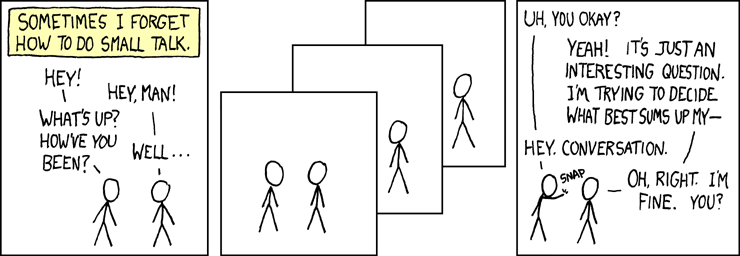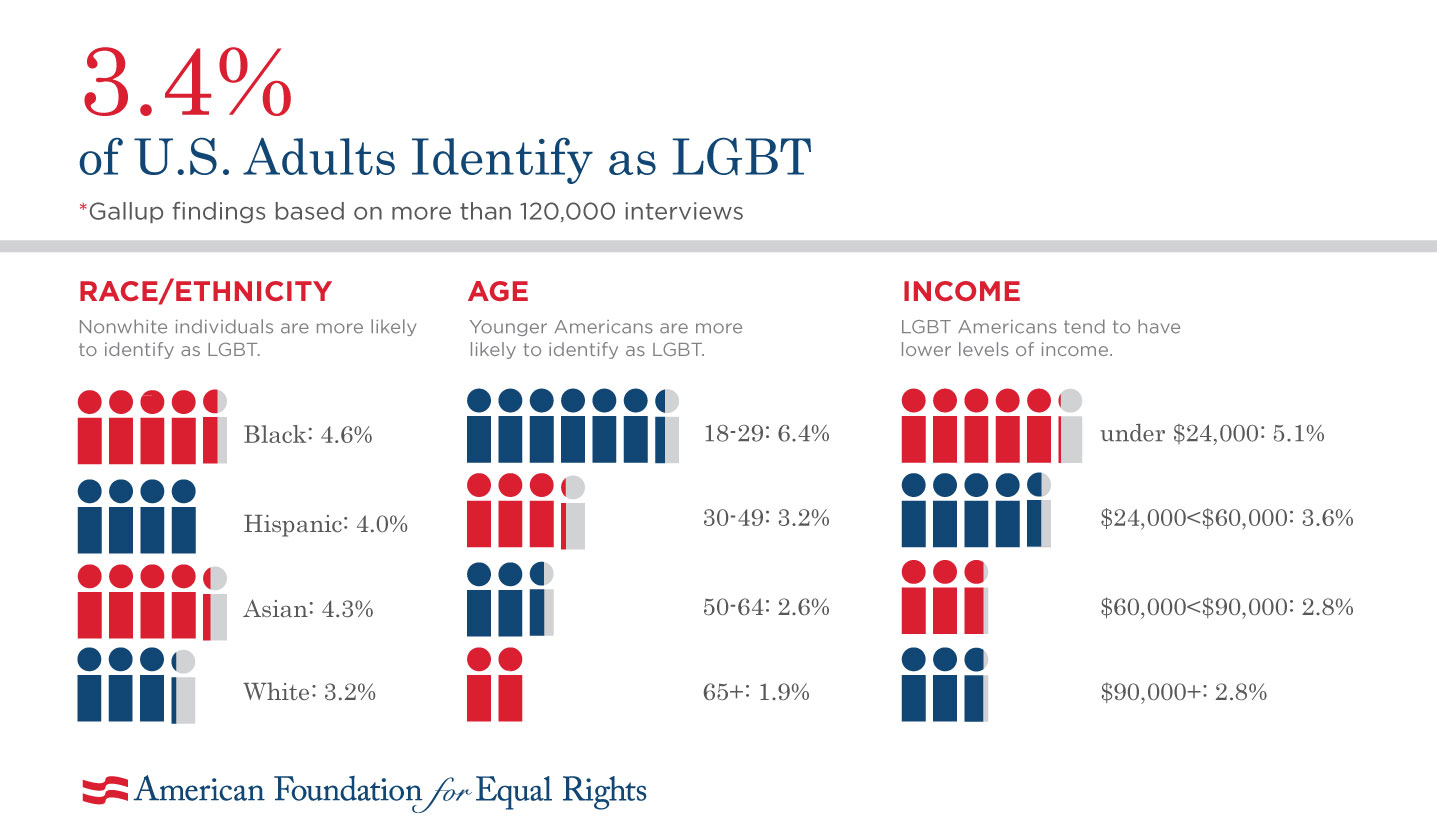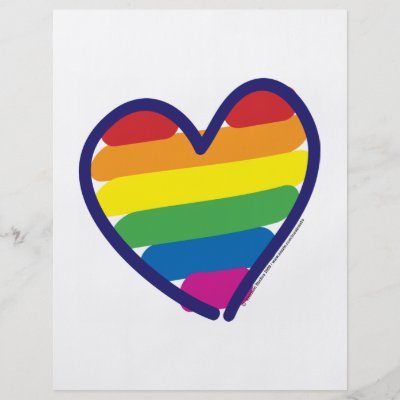Not long ago, I had never really given a thought to the gay community. I equated it with something along the lines of political activism, which had always seemed beyond my concern. I'd especially espoused the whole "one voice won't make a difference" mentality when it came to involvement - especially as a teen. The idea of a 'gay community' seemed too filled with social and/or political involvement with (or even awareness of) people who happen to share the - in my eyes - insignificant commonality of not being straight. I had rarely viewed my sexuality as anything more than a deep secret and it was never something I was passionate about. I had just been indifferent to it, only viewing it as an abstraction.
There's always been a stigma against gays in society, obviously, but only recently had I truly considered it a stigma against myself. I realized that the position of indifference I'd taken on, considering involvement within the community beyond my concern, was not how I should be viewing it. Homophobia and anti-gay sentiment is of course a real, pervasive problem that can't be avoided... and, eventually, I realized that I didn't want to avoid it anyway.
I was reminded of this by a book, Albert Camus's The Plague. Camus was concerned extensively with the human condition. Living through both World Wars, he developed the philosophy that men are inherently more good than bad, but what really defined their virtuousness was their level of ignorance - which his character states as "the most incorrigible vice". He viewed that an individual's existential purpose in life was achieved best through combating social problems with solidarity.
In his book, the citizens of a town live routine, habitually self-concerned lives which revolve around commerce and shallow relationships. When faced with a devastating disease, the townspeople initially refuse to acknowledge it due to their indifference and contentedness with their sheltered isolation. They were simply waiting to die. It is only when the city is quarantined - when people are forced to accept the pervasion of the plague - that collective measures are taken to combat the disease. At this point, Camus's ideal is achieved; the people take participatory action to combat the harms facing a society - regardless of its inevitability and of their success against it. They realize the prevalence of the problem, and thus the plague's victims finally develop true compassion for one another; they begin to value every beloved and endangered memory, experience, and person in their life far more than when they had previously taken it all for granted. It is only when they struggle against death that they finally begin to live.
While this point of view might seem philosophically extreme and dense, I think it's a lot more applicable to our lives than it seems. After coming out to two of my friends, I considered actually being gay within society, and what it would be like.. and frankly, I didn't like what I expected. I thought, "it's a struggle to be open. It's a struggle to face society. It's a struggle to be gay." But that's exactly what the cowards in The Plague thought; they hid and shielded themselves from the disease that was terrorizing their town, because that was easy - because that required no personal sacrifice. Because it didn't require them to rise above themselves.
I found Camus' pestilence particularly equatable to homophobia today. It is a true social disease, allowed to persist through conscious ignorance towards it. The problem, in addition to its own derivation from ignorance, is that people are content to live ignorantly to it; these people are the ones in The Plague who sat in their houses doing nothing, or attempted to flee the city - which is, in Camus's eyes, meaningless, selfish alienation from a pestilence they chose to ignore. This can be reflected in society as a whole, perhaps, in that society has allowed the continuity of such intolerance. However, it was also what I was what I was like; I hardly had a true concern for homophobia. Sure, I acknowledged it's existence and malevolence, as well as being under its aim, but I felt that I had no place in fighting it. Camus would condemn me. He demands that people stand up to the plague of homophobia, which incessantly harms the gay community, for it has an impact, whether direct or indirect, on all of us. It is notable that Camus does not even make the distinction between achieving success; to fight rather than submit, and to be defiant against wrongness, however abstract, is what gives one's life purpose and oneself definition.

Camus's plague can not only be considered allegorical
of homophobia, but also of ALL societal problems.
of homophobia, but also of ALL societal problems.
While I still hardly have a 'role' in the LGB community, I've moved past labeling it as impalpable "activism". Yet, I thought to myself, 'am I not still a coward? I'm certainly still afraid to come out, and to be open with my sexuality in my personal life... I'm afraid of sacrifice in order to stand for a greater common purpose.' But then again, at what point does one's involvement become uncowardly, rather than being so from the very smallest amount? Even Camus recognized the importance of all levels of resistance - he labels one of his characters, "who had to his credit only a little goodness of heart," as the hero of his book, because despite his relatively insignificant contribution, Grand "was the true embodiment of the quiet courage" that was the inspiration for solidarity against the plague.
For example, it may have been long in the coming, but finally, there is an active, openly gay man in the NBA - Jason Collins. Just his simple admission to Sports Illustrated and the sports community, and ultimately, to the world, gives so many people - myself included - hope that society is changing, that it is finally coming to be more accepting of homosexuality. He may not have done something requiring much effort in itself (not that it's easy or uncourageous to confess homosexuality in that context), but even something such as coming out can be herculean in the ideal behind it and impact from it.
Supporting the gay community is not something that I, nor anyone, necessarily has to be shouting and protesting about. I figure that those roles of prominent, widespread involvement can be left to more logistically skilled and uplifting people. What's left for me to do would be to provide my own perspectives - through this blog - and hope that, maybe, someone somewhere might find comfort through them. But I've mentioned that in enough posts already. All I can do is hope that it's enough, for now at least.
"We do not congratulate a schoolmaster on teaching that two and two make four, though we may, perhaps, congratulate him on having chosen his laudable vocation. Let us then say it was praiseworthy that...so many others should have elected to prove that two and two make four rather than the contrary; but let us add that this good will of theirs was one that is shared by the schoolmaster and by all who have the same feelings as the schoolmaster, and, be it said to the credit of mankind, they are more numerous than one would think...[Yet] needless to say...these men were risking their lives. But again and again there comes a time in history when the man who dares to say that two and two make four is punished with death. The schoolteacher is well aware of this. And the question is not one of knowing what punishment or reward attends the making of this calculation. The question is that of knowing whether two and two do make four. For those of our townsfolk who risked their lives in this predicament the issue was whether or not plague was in their midst and whether or not they must fight against it."
- Albert Camus
(Yes, his writing is pretty dense, but I found inspiration through it. I'd definitely recommend his work to anyone.)





